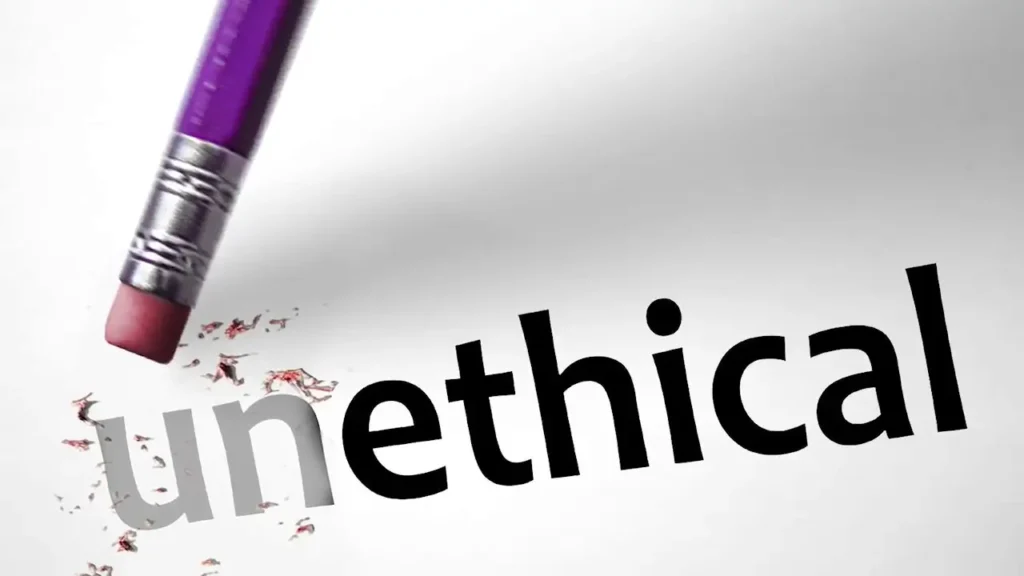Mistakes happen everywhere, but there are some common unethical medical billing practices that many healthcare providers make. Let’s not get into knowing whether they are intentional or unintentional; these unethical behaviors plague the medical system, and the job of providers gets a lot different and difficult. With this, both patients and providers suffer the manipulation of schemes.
Certainly, medical billing is a complex process and plays a crucial role in the healthcare system. With medical billing, the system ensures that healthcare providers are reimbursed appropriately for the rendered services. However, unethical medical billing practices can affect patient clientele, inflate healthcare costs, and erode confidence in the healthcare system.
On one side, patients may face paying extra charges for healthcare; on the other hand, providers may have to give up their work licenshttps://clinicast.netsteps-in-the-medical-billing-process/es and face financial penalties.
Today, we’ll explore the steps and techniques that patients should follow to report unethical medical billing practices by the medical billers, shedding light on how to contribute to encouraging a fair and transparent healthcare system and protecting their rights.
Understanding Unethical Medical Billing Practices

Before diving deep into the unethical billing reporting process, it is essential to clearly understand what constitutes unethical medical billing practices. Every medical bill constructs of range of medical codes that reflect the nature and the severity of the disease, the level of care provided, the professionals involved, the diagnosis, and the treatment provided against it. These codes help determine the insurance payers that how much every provider or healthcare organization will be paid in the given period of time. Unethical practices occur when these codes are used for some services to get paid but are not actually provided.
Some common examples include:
Upcoding:
Inflating the charges by using incorrect billing codes to increase reimbursement.
For instance, a doctor provides a simple and brief medical service, but while coding for billing, they list extensive care and specialized medical service. They will automatically result in higher reimbursement returns. The patients often overlook these practices as they need to be made aware of the fact that these codes are translated to specialized services that may cost them extra.
After witnessing such issues, the Centers for Medicaid and Medicare Services (CMS) introduced a guideline that helps patients in knowing their bills more closely.
Unbundling:
Unbundling is somewhat similar to upcoding but in a different way. It means separating a bundled service into multiple billable components to maximize reimbursement.
The FBI clarifies unbundling as;
“A practice of submitting bills in a fragmented fashion in order to maximize the reimbursement for various tests or procedures that are required to be billed together at a reduced cost”
In light of the definition, Unbundling can be taken as fragmentation because one code can be further fragmented into multiple codes, resulting in a higher reimbursement.
Without a whistle-blower, both unbundling and upcoding cannot be detected, i.e., healthcare members, secretaries, and the nurses involved in the treatment or someone who knows medical coding.
Phantom Billing:
It is a pure fraudulent activity that is so easy to carry out. It is a process of invoicing for services or procedures that were never performed. This translates the meaning that treatments were only listed on paper and providers never rendered them or were truly unnecessary.
For instance, a provider submits a code for the use of a wheelchair while treating the patient that the patient in question was not needed or received.
Misrepresentation of Services:
Billing for services that were different from what was actually provided.
When it comes to misrepresentation of services, it comes in multiple forms, like a misrepresentation of resources, dates, location, and provision of services. This may sound far-stretched or exaggerated statement, but some organizations hire such unprofessional staff and let them do provide services and procedures.
Gathering Information and Documenting Evidence
To effectively report unethical medical billing practices, gathering all relevant information and documenting the evidence is crucial. Consider the following steps:
- Review Medical Bills: Carefully examine your medical bills, insurance statements, and any related documents to identify discrepancies or suspicious charges
- Keep Records: Maintain detailed records of medical visits, procedures, prescriptions, and any conversations with healthcare providers or insurance representatives
- Verify Insurance Coverage: Confirm that your insurance plan covers the services you received and check if the billed amounts align with your coverage benefits.
Reporting Unethical Medical Billing Practices
- Contact Your Healthcare Provider: Start by discussing your concerns with the billing department of your healthcare provider. Sometimes, billing errors can be unintentional, and they can resolve the issue promptly.
- Contact Your Insurance Company: If the issue persists or if you suspect fraudulent activity, contact your insurance company. Provide them with the necessary information, such as medical bills, documentation, and any supporting evidence you have collected.
- State Medical Board or Licensing Agency: In cases of suspected professional misconduct by a healthcare provider, consider reporting the issue to the appropriate state medical board or licensing agency. They have the authority to investigate and take disciplinary action if necessary.
- Federal Agencies: You can also report unethical billing practices to federal agencies like the Office of Inspector General (OIG) or the Department of Health and Human Services (HHS). They handle complaints related to healthcare fraud and abuse.
- Consumer Protection Agencies: Contact consumer protection agencies like the Federal Trade Commission (FTC) or your state attorney general’s office. They may be able to provide guidance or investigate the matter further.
Seeking Legal Assistance
If you have exhausted all other avenues and believe your rights have been violated, consulting with a healthcare attorney may be appropriate. They can help you understand your legal options and guide you through the process of filing a lawsuit, if necessary. An attorney experienced in medical billing and healthcare law can provide valuable advice and representation to ensure your case receives the attention it deserves.
Conclusion
Reporting unethical medical billing practices is crucial for patients’ well-being and the healthcare system’s integrity. By understanding what constitutes unethical billing practices, gathering evidence, and following the appropriate reporting channels, patients can play an active role in combating fraud and protecting their rights.



